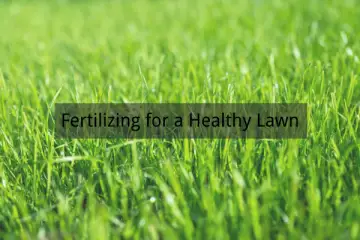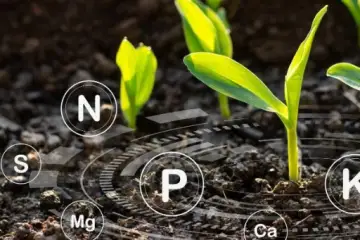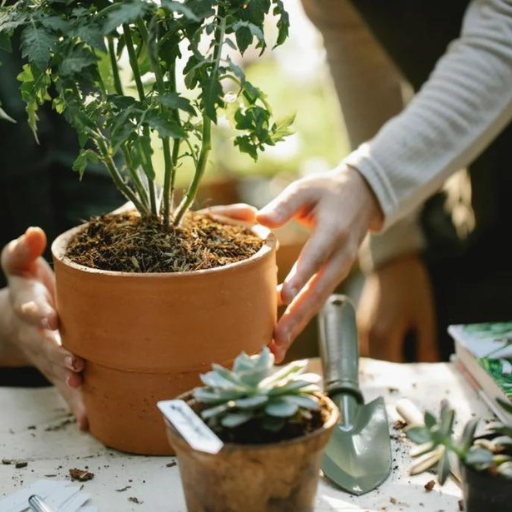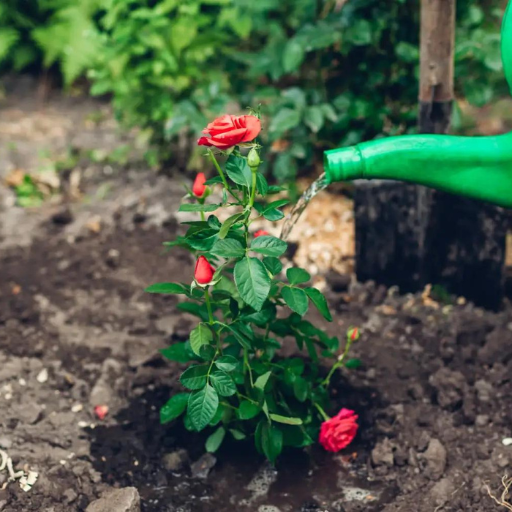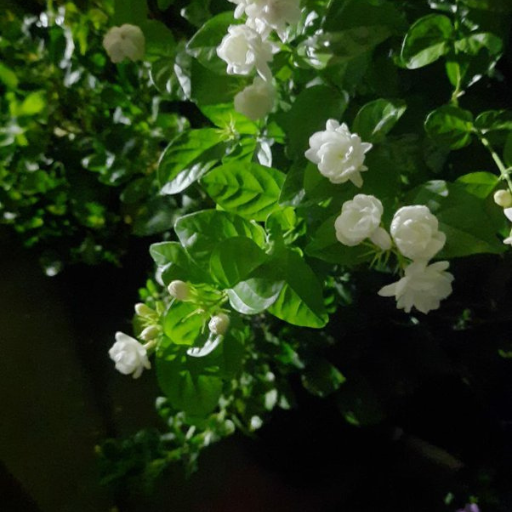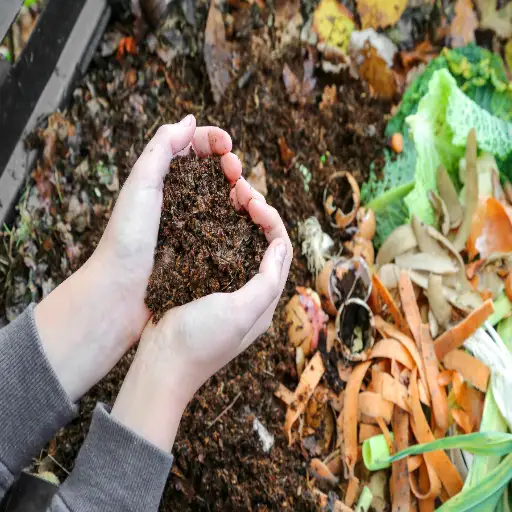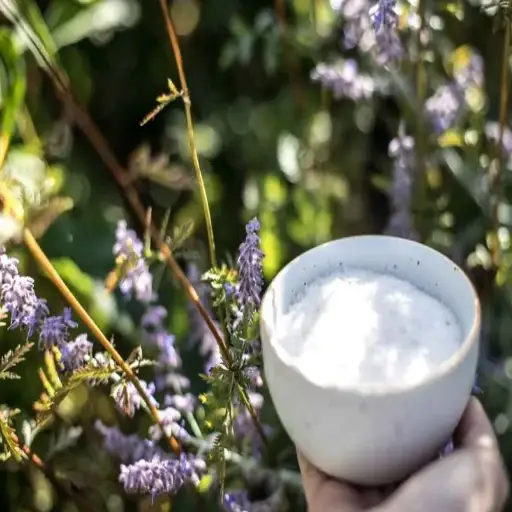Gardening enthusiasts and professional horticulturists alike understand the importance of providing the right nutrients to their plants for optimal growth and vitality. This guide is dedicated to exploring the best organic flower fertilizers available, ensuring your gardens are not only vibrant and healthy but also eco-friendly. Whether you are tending to luscious flowers, essential vegetables, or a mix of diverse plant species, choosing the right fertilizer can make all the difference. In this article, we will delve into various organic fertilizer options, discussing their benefits, application methods, and how they contribute to a thriving garden ecosystem. Join us as we uncover the secrets to cultivating a flourishing garden naturally!
What is the best organic fertilizer for flowers?
Understanding natural fertilizers
Fertilizers that are organic come from compost, manure, bone meal and seaweed among others. These nutrients include nitrogen, phosphorus and potassium which plants need greatly for growth and flowering. They improve soil structure, increase microbial activity in the soil and enhance the water and nutrient holding capacity of soils unlike synthetic ones. This ensures a healthier garden environment that is sustainable. Nonetheless, the best organic fertilizer for flowers will depend on your plant’s specifics as well as your soil; however typical examples include fish emulsion, kelp extract and compost due to their balanced nutrient profile ensuring vigorous flowering.
Best Organic Fertilizer for Flowering Plants
- Compost: Compost is a versatile and time-honored organic fertilizer which enriches soil by providing countless nutrients to it while improving its structure over time. It gives an essential nutrient supply through slow release to help improve root systems leading to lush flowers due to improved moisture retention & soil aeration.
- Fish Emulsion: Fish emulsion is obtained from decomposed fish waste making it rich in nutrients. Nitrogen being necessary for leafy growth and flowering makes this product great since it is one of the key sources of nitrogen to plants. Fish emulsion nourishes plants with easily available nutrients leading to faster budding of plants leaves and even other parts including vibrant blooms as well as enhanced microbial activities in the soil thereby promoting overall plant health.
- Bone Meal: Bone meal is rich in phosphorous nutrient required by growing plants especially during formation of roots as well as blossoming seasons hence favoring prolific bloom development by such species like bougainvillea flowers among others after being released at later stages slowly over time when required for usage again.
Each of these organic fertilizers has unique advantages which contribute towards the establishment of a healthy garden ecosystem where sustainability can be maintained; they should be used together so that all the requirements for successful blooming can be fulfilled.
How choose suitable flower plant food
A number of key factors should be considered in order to have optimal growth and blooming while choosing the right plant food for your flowers:
- Soil Test: You can determine the nutrient levels and pH of your soil by conducting a soil test. It will show any deficiencies that exist and thus help you choose the right kind of fertilizer.
- Nutrient Requirements: The nutrients needed by different flowers vary greatly among them. For instance, flowering plants generally benefit from fertilizers with high levels of phosphorus (for root development and flowering) and potassium (for overall plant health). Therefore, there should be a balanced fertilizer which has got all these kinds of needs.
- Organic vs. Synthetic: Determine whether you will use organic or synthetic fertilizers. Fish emulsion, compost or bone meal are examples of organic fertilizers that promote slow release nutrient systems as well as improving soil conditions. On the other hand, synthetic ones can provide instant nutrients but may not enhance soil quality.
- Application Method: Take into account how easy it is to apply the fertilizer as well as how frequently fertilizing should occur on your garden. Fish emulsion being a liquid type is quickly absorbed hence an ideal one for regular feeding whereas granular type like compost or even bone meal release slowly over time.
- Plant Type and Growth Stage: Use appropriate fertilizer for different flower species at various stages of their lifecycle i.e., seedlings/young plants might require differently balanced nutrients compared to matured blossoming plants.
By considering all these elements one can choose a plant food which will encourage healthy lives and flowering prospects in his/her flowers.
How can you fertilize your vegetable garden organically?
Greatest natural fertilizers for vegetables:
While picking the best organic plant nutrients for vegetables in your garden, think about these top suggestions:
- Manure: Well-rotted animal manure such as cow, horse, or chicken manure is a great source of organic nitrogen, phosphorous and potassium that enriches the soil and enhances microbial activity, thereby promoting plant growth.
- Compost: Made from decomposed organic matter with essential nutrients it improves soil structure and increases water holding capacity and ensures steady release of nutrients necessary for proper vegetable growth.
- Bone meal: Bone meal is rich in phosphorus which is important for root development and flowering. It works particularly well on root crops like carrots and potatoes ensuring strong healthy plants.
By including these elements into your vegetable garden you will promote strong plant health, enhance soil fertility as well as realize bountiful yields.
Application of liquid and granular fertilizers
Correct application liquid and granular fertilizers is essential to maximize benefits to your vegetable garden. Here’s how to do it correctly:
Liquid Fertilizers:
- Dilution: Follow manufacturer’s instruction by diluting liquid fertilizers accordingly. Concentrated ones causes harm if overdone on plants.
- Application Timing: For better results apply early morning or late evenings when temperatures are cooler so as to avoid scorching leaves and aid in uptake.
- Foliar Feeding: Spraying leaves with liquid fertilizer gives an instant nutrient intake since plants quickly absorb through their foliage.
- Frequency: Liquid fertilizers generally need more frequent application than granular types usually at every 1-2 week interval during growing season.
Granular Fertilizers:
- Even Distribution: Spread the granules uniformly around the base of the plants ensuring they don’t touch stems directly.
- Watering In: After applying them, one should water the area thoroughly so that they dissolve easily into soil hence making them accessible to roots.
- Soil Incorporation: The best practice is to lightly rake or mix them into the upper layer of soil. This will prevent nutrient loss and encourage good absorption.
- Application Timing: Mostly, granular fertilizers require less application even sometimes only once at the beginning of growing season as indicated on product label.
Knowing these steps will enable you to give adequate nutrition for growth and high yields for your vegetable plants.
Soil amendments in a vegetable garden
Soil amendments are essential in improving soil health and promoting growth of vegetables. Here are some common soil amendment recommendations:
- Compost: Improves water retention, structure and nutrient content by adding organic matter to the soil. It also promotes beneficial microbial life.
- Manure: Provides rich nutrients when well-rotted such as cow, horse, or chicken manure. It improves soil fertility but should be used carefully because it can lead to over-fertilization.
- Peat Moss: Helps with moisture retention and aeration in soils which tend to be dry. When dealing with heavy clay soils that need loosening or sandy soils that have low water-holding capacity, peat moss is very effective.
- Green Manure: Growing cover crops like clover or alfalfa then tilling them into the soil helps add organic matter, improve soil structure and fix nitrogen in the soil.
- Lime: Lime is used to increase pH levels of acid soils thus enhancing availability of vital plant nutrients.
When these soil amendments are mixed into your vegetable garden soil, you will have a good growing environment that will encourage healthy plants with good returns.
What nutrients do flowering plants need?
Nitrogen, phosphorus, and potassium are essential nutrients
For flowering plants to grow and thrive, they require a balance of essential nutrients. The three major nutrients also known as macronutrients are:
- Nitrogen (N): Nitrogen is very important for vegetative growth and it is a part of chlorophyll which captures sunlight in the process of photosynthesis for producing energy by plants. Nitrogen also encourages the development of leaves and stems for plant strength and health.
- Phosphorus (P): Energy transfer and storage within the plant are facilitated by phosphorus. It has a huge role in the formation of roots, flowers, and seeds. Phosphorous is also used to synthesize DNA and RNA which is important for cell division leading to growth.
- Potassium (K): Potassium helps in regulating various biochemical processes in plants such as enzyme activation among others; photosynthesis nutrient transport etc. It can improve plant health generally, boost its resistance against diseases/stresses while enhancing flower/fruit quality/size.
To have successful growth of these flowering plants they require enough quantities of these crucial nutrients that should be observed at all times particularly fertilization stage.
Role of composting & manure
Compost and manure play an important role when it comes to enriching soil fertility while at improving plant health. Compost is decomposed organic matter that provides a slow-release source of nutrients. It improves soil structure, moisture retention as well as enhances soil aeration. It supplies essential microorganisms that aid in breaking down organic materials into forms that plants can easily absorb thus promoting healthy root systems.
Manure, which is derived from animal waste products, is another powerful natural amendment rich with nitrogen, phosphorus as well as potassium content. When properly composted not only does it add valuable nutrient sources but it will also enhance texture plus water holding capacity within the same soil system. They help break down nutrients properly since they build beneficial soil organisms and thus organic matter.
The combination of compost plus manure is responsible for the synergy that results in improved soil health and fertility which is vital to the success of flowering plants growing and blooming. By incorporating these supplements into your gardening routine, you will guarantee a balanced supply of nutrients to crops while also improving overall soil quality.
How to Conduct a Soil Test for Optimal Nutrient Content
Soil testing is important in determining nutrient content and pH level of one’s soils to ensure appropriate growth conditions for plants. The following are the steps on how perform the test:
- Collect samples: Take soil samples from several different locations around your garden using a clean stainless steel trowel to dig about 4-6 inches deep. You should combine them all in a clean bucket creating a composite sample.
- Dry it: Spread this soil out on newspaper or paper towels and let it air dry but never try using heating methods as they can change its chemical content.
- Package: When dry, put mixed soil containing about 1-2 cups into either clean plastic bag or else some other kind of bag that is provided by testing labs.
- Submit for analysis: You have options such as taking your soils sample to local agricultural extension offices, commercial labs dealing with soils testing. In most cases, you may be asked to fill out their form indicating details regarding your garden as well as the types of crops one intends planting.
- Check the outcomes: At the laboratory, soil pH levels as well as macronutrients that include nitrates, phosphorous and potassium and micronutrients will be tested. This will generally involve soil amendment proposals for fixing any missing nutrients or imbalance.
By following these steps, you are able to learn about the nutritional components present in your soil, and hence make more informed decisions how to optimize plant health and growth.
How frequently should you fertilize different plants?
Fertilizing frequency for flowers compared to veggies
For Flowers
The fertilizing needs of flowers can vary greatly depending on the type of plant and the soil conditions. Generally, annual flowers benefit from being fertilized every 4 to 6 weeks during the growing season. However, perennials may need only one early spring feeding and then another in midsummer if they are showing signs of nutrient deficiency. A balanced water-soluble fertilizer is recommended for providing essential nutrients as well as encouraging the production of more blossoms.
For Vegetables
Vegetables typically have higher nutrient requirements than flowers due to their rapid growth and fruit production. Most vegetable crops require a balanced fertilizer applied once a month throughout the growing season. Leafy greens and fast-growing plants like lettuce and spinach may need more frequent fertilization, every 2 to 4 weeks, to ensure continuous growth. For instance, root vegetables will better thrive in phosphorus- and potassium-rich soil which can be amended at planting time or halfway through the life of vegetables.
By adjusting your fertilizing schedule to the specific needs of flowers or veggies, you can ensure that your garden grows healthy as well as has abundant blooms or harvests.
Seasonal fertilization tips for home gardens
Maintaining a healthy and productive garden year-round requires effective practices such as proper application of nutrients. Below are some quick seasonal hints:
- Spring: Begin applying slow-release fertilizer when plants start new leaf development in order to promote strong root systems before active growth starts up again.
- Summer: During this peak growing period, use a water-soluble fertilizer every 4 to 6 weeks to supply essential nutrients. Higher nitrogen content should be preferred for vegetative stages in vegetables whereas flowering plants have high requirements for phosphorus.
- Fall: Low-nitrogen high-potassium fertilizers should be adopted by growers in preparation for dormancy since growing seasons are just about ending. The objective here is root growth and hearty plants for the winter season.
- Winter: In most regions, there should be little or no application of fertilizer during the winter months. However, light applications of balanced fertilizers can be made in areas experiencing mild winters or indoors where there are potted plants.
By adjusting your fertilization routine to the changing needs of the seasons, you can provide your home garden with the necessary nutrients to thrive year-round.
Slow-release versus quick-release organic fertilizers
Slow-release organic fertilizers: These fertilizers gradually release nutrients over an extended period, typically months. They come packaged as granules, pellets and spikes that are made from natural materials such as manure, bone meal and compost. The slow release ensures a steady supply of nutrients, promotes healthy root development, and reduces the risk of nutrient leaching. They are ideal for long-term soil health and are less likely to cause fertilizer burn.
Quick-release organic fertilizers: In contrast, quick-release fertilizers provide nutrients immediately upon application making them suitable for rapid plant growth or correcting nutrient deficiencies. Usually found in liquid or powdered forms e.g., fish emulsion or blood meal they give a quick fix but might also require more frequent application. Although fast release options deliver instant results they also pose a higher risk of nutrient runoff if overused and could lead to damage in plants.
The choice to be made in organic farming is between slow-release and quick-release fertilizers as it depends on the specific requirements of the plants and when they need nutrients. Hence, when you want to provide your crops or plants with sustained growth for a long period, then slow-release fertilizers are recommended while those looking for immediate nutrient supplementation should go for quick-released fertilizers.
Can organic fertilizers improve soil structure?
Significance of organic matter and microorganisms
From my own experience, the use of organic matter and microorganisms is significant in improving soil structure. This type of organic matter such as compost or decomposed plant residues increases the water holding capacity and nutrient retention ability of soils resulting in better growth of plants. Microbes are responsible for decomposing the organic matter which provides nutrients to the soil. Also, these microbes cause soil with large pores that allow good drainage and aeration. I have witnessed a great increase in soil fertility and hardiness due to adding organic matter into it as well as promoting beneficial microorganisms.
Use of compost tea and other organic additives
The use of compost tea among other organic additives has been highly advantageous to my gardening practices. Through putting compost inside water and leaving it there one comes up with a liquid called compost tea which is known to be very rich in nutrients, enhances soil structure by introducing many beneficial organisms into the soil directly. These microorganisms help break down organic material leading to release of essential nutrients thus increasing soil fertility.I’ve also found out that you can reach healthier more resilient plants using worm castings or seaweed extract which provide balanced macro- micronutrients supply.Because I constantly integrate those natural remedies my soils now have high fertility levels ensuring excellent drainage system thus enough air movement hence this boosts plant growth as well their recuperation rate.
Long term advantages associated with using Organic Soil Amendments
Organic soil amendments have numerous long-term benefits that significantly influence both plant growth and soil health. When we add things like compost manure, compost tea, worm castings and seaweed extracts on regular basis the structure and fertility status gets improved gradually over time. These materials supply important plant nutrition requirements while also enriching them with beneficial microbes that improve nutrient availability thereby enhancing crop productivity over years. After some time, the ground becomes looser letting water stay for longer periods whilst still being very airy hence allowing for robust root development and giving plants more resistance to environmental stresses. Finally, the application of organic soil amendments creates a sustainable environment with healthier crops and higher yields for many years.
Frequently Asked Questions (FAQs)
Q: Considerations to make when picking a fruit tree fertilizer.
A: Specific nutritional requirements of these trees should be looked at when choosing a fertilizer for them. Fertilizers high in potassium and phosphorus that assist in fruit development are what you should look for. Poultry manure and homemade compost are good examples of organic fertilizers that can facilitate healthy growth as well as productive yield.
Q: How does soil pH affect fertilizer application?
A: Availability of nutrients is highly affected by the soil’s pH level, which also affects how effective a given type of fertilizer may be. Most plants grow best in slightly acidic to neutral soils (pH 6.0-7.0). Soil pH should be tested before applying any fertilizers so that nitrogen, phosphorus and other nutrients are taken up by plants properly thus promoting plant nutrition.
Q: Are there any organic alternatives to chemical fertilizers that are easy to apply?
A: Yes, there are several chemical-free substitutes for chemical fertilizers which can be applied with ease. Some liquid fertilizers made from organic substances like fish emulsion and seaweed extract can be sprayed on leaves resulting into quick absorption through the tissues. Furthermore, pellets of poultry manure or similar products serve this purpose conveniently.
Q: What are the benefits of using organic fertilizers instead of chemical ones?
A: Organic fertilizers offer various advantages over chemical ones. They improve soil structure, enhance beneficial microbial activity and reduce risk posed to kids and pets. Also, plants get nutrients slowly from these types hence less chance for excessive levels caused by too much feeding of crops or loss through leaching process thus they support environmental conservation approach alongside sustainable gardening practices.
Q: How do I know the appropriate amount of fertilizer to use in my flower beds?
A: For your flower beds, follow the manufacturer’s instructions about quantity while considering what each plant requires specifically. Overfertilizing may cause burns on the plants, and inadequate fertilization may imply low nutrient availability. This way, an optimum nutrient balance can be determined by taking regular soil tests.
Q: What is an all-purpose organic fertilizer, and when should it be used?
A: An all-purpose organic fertilizer is a mixture of nutrients that are compatible with different categories of plants. It usually consists of nitrogen, phosphorous and potassium (NPK) together with some minors and beneficial microorganisms. It can be applied during planting and growing seasons to foster the general plant health and promote vigorous growth.

